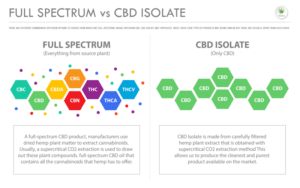
Treating Bipolar Disorder with Medical Marijuana – How It Helps
- Some patients are finding success in using medical marijuana to treat bipolar disorder.
- However, not all cannabis strains and cannabis-infused products are recommended for bipolar patients.
- Bipolar patients need to use extreme care when treating their condition with cannabis and should only do so under the guidance of a qualified medical marijuana doctor.
- A wide variety of marijuana strains and cannabinoid delivery methods suitable for treating bipolar disorder are available at medical marijuana dispensaries nationwide.
Bipolar disorder — also known as manic depressive disorder — is a mental health disorder characterized by extreme mood swings resulting from chemical imbalances in the brain. For some patients, using medical marijuana to treat bipolar disorder helps to balance the brain chemistry responsible for moods.
Patients suffering from bipolar syndrome experience alternating periods of extreme exuberance and deep depression. Bipolar patients often show deficiencies and imbalances in neurotransmitters responsible for mental states including noradrenaline, serotonin, and dopamine.
Bipolar disorder has a wide range of symptoms. They include fatigue and hyperactivity, agitation, depression, insomnia, extreme talkativeness, social withdrawal, intense rumination, attention deficit, excessive risk-taking, and even thoughts of suicide. The condition also often results in a decrease or increase in appetite causing significant weight loss or weight gain.
The causes of bipolar disorder aren’t always clear. However, 80 percent of cases are thought to be caused by genetic factors. In fact, bipolar disorder is the most likely mental health disorder to be inherited from a parent. Other causes might include chronic drug or alcohol abuse, multiple sclerosis, and stroke.
Bipolar disorder is a lifelong condition with no known cure. Patients suffering from the condition generally manage their mood swings with medications and psychotherapy. However, medications used to treat bipolar disorder can have adverse long-term side effects in some patients.
Some bipolar patients are finding success in treating bipolar disorder with medical marijuana. However, cannabis can also sometimes exacerbate symptoms in some patients. Each patient reacts to treatment with medical marijuana differently. Certain strains or cannabinoid formulas can have dramatically different effects.
How does medical marijuana help bipolar disorder patients?
Some patients suffering from bipolar disorder experience symptoms which can be treated with medical marijuana such as anxiety and depression, insomnia, and loss of appetite.
Again, it’s important to point out that the effects of medical marijuana depend highly on the strain of cannabis or the cannabinoid formula being used as well as the dosage and regimen.
For example, high doses of THC, the intoxicating cannabinoid found in marijuana can sometimes reduce depression but can also increase anxiety. On the other hand, another cannabinoid, CBD, is non-intoxicating and well-known for its ability to reduce anxiety in some patients.
An article published in the Journal of Psychoactive Drugs in 1998 claimed that medical marijuana to be an effective treatment option for some patients.
A 2012 investigation studied bipolar patients with a history of cannabis use disorder (CUD). Researchers reported that these patients demonstrated significantly better performance in terms of attention, working memory, and processing speed.
And according to a 2016 report published in PLOS One, bipolar disorder participants who smoked medical cannabis regularly reported a significant reduction in mood symptoms after smoking marijuana.
How does medical marijuana treat bipolar disorder?
As mentioned, bipolar disorder is characterized by a marked imbalance in brain chemistry. One of the bodily systems responsible for balancing brain chemistry is the endocannabinoid system or ECS.
The ECS consists of a class of compounds called endocannabinoids which are produced by the brain. These compounds stimulate receptors found on the surface of neurons causing them to change their behavior.
For example, an endocannabinoid called anandamide is responsible for modulating the production and uptake of a neurotransmitter called serotonin. Patients suffering from conditions such as depression and anxiety are often deficient in serotonin.
Compounds produced in the flower clusters of the female cannabis plant called phytocannabinoids mimic the effects of endocannabinoids to some extent.
The two most common cannabinoids found in marijuana are tetrahydrocannabinol (THC) and cannabidiol (CBD). Both can affect neurotransmitter levels. THC is well-known for its ability to induce feelings of euphoria. And CBD is known for its ability to reduce anxiety. Other minor cannabinoids found in marijuana such as CBG and CBN can have similar effects.
Is medical marijuana safe for treating bipolar disorder?
When used as directed by a knowledgeable medical marijuana doctor, cannabinoids have been shown to be well-tolerated with a low risk of long-term side effects for most patients. However, patients suffering from mental health disorders should use extreme care when attempting to treat their condition with medical marijuana.
Wide mood swings produce a tendency in bipolar patients to overreact and take unwarranted risks. This factor can cause bipolar patients to take extreme measures including consuming excessive dosages of cannabinoids which can worsen mental health disorders. THC, in particular, because of its ability to induce feelings of euphoria has the potential for abuse.
CBD might present a better option for bipolar patients as it is known to help reduce depression without causing anxiety in most patients. Moreover, anyone can buy CBD online without the need for a medical marijuana card. That being said, medical marijuana and cannabis-infused medicines should only be used at the direction of a qualified medical marijuana doctor.
How medical marijuana is used to treat bipolar disorder?
Some medical conditions are treated with periodic daily use of cannabis. However, patients suffering from mood swings should avoid daily use of cannabis. Rather patients are often advised to only consume cannabinoids when symptoms warrant.
Patients suffering from bouts of depression might benefit from small dosages of THC. Patients suffering from periods of anxiety might benefit from small doses of CBD. And patients suffering from sleeplessness might benefit from a combination of both taken before bedtime.
Medical marijuana dispensaries offer a wide selection of cannabis strains, delivery methods, and formulas with varying ratios of select cannabinoids. Some of the delivery methods available include dried marijuana flower for smoking and cooking, plus vaping cannabis-infused oils, and dabbing with purified cannabinoid isolates.
Several oral medications are also available including cannabis-infused tinctures, capsules, lozenges, edibles, patches, and pure cannabinoid inhalers.
Inhalation methods such as smoking, vaping, dabbing, and inhalers offer the fastest onset time and highest bioavailability. Patients suffering from sudden bouts of depression or anxiety might benefit most from inhalation. However, smoking, vaping, and dabbing are not recommended for patients with circulatory problems such as hypertension and respiratory disorders such as asthma as it could raise blood pressure and/or cause lung damage.
Tinctures, capsules, lozenges, edibles, and patches are slower-acting with lower bioavailability. However, these delivery methods offer convenience, discreetness, and accurate dosing.
Conclusion
Compounds produced in cannabis have been shown to help reduce anxiety, depression, and sleep disturbances in some patients suffering from bipolar disorder. However, each patient responds differently to the various cannabinoids found in marijuana. THC can help reduce depression in some patients but can also worsen anxiety.
Although some patients might benefit from the use of medical marijuana and cannabis-infused medications, extreme caution should be used as excessive consumption of cannabinoids can make matters worse for some patients.
Bipolar disorder requires lifelong treatment under the care of a qualified medical marijuana doctor. Patients suffering from bipolar disorder should not be self-medicating.

Sign Up for Medical Cannabis Today!
For potential patients, if you’re ready, we make it easy to connect with a medical marijuana doctor nearby or online. If you are interested in getting certified, please fill out the MMJ patient registration form below and press submit to get started. See if you qualify today!

MedCard Registration Form


Medical Marijuana Links:
Sources And Additional Reading:
- Joint Effects: A Pilot Investigation of the Impact of Bipolar Disorder and Marijuana Use on Cognitive Function and Mood
- Marijuana impacts mood in bipolar disorder: a pilot study
- Patient characteristics and treatment implications of marijuana abuse among bipolar alcoholics: Results from a double-blind, placebo-controlled study
- Cannabinoids in bipolar affective disorder: a review and discussion of their therapeutic potential – CH Ashton, PB Moore, P. Gallagher, AH Young, 2005
- The Effect of Extreme Marijuana Use on the Long-Term Course of Bipolar I Illness: Single Case Study
- Marijuana and bipolar disorder: Effects, treatment, and more.














